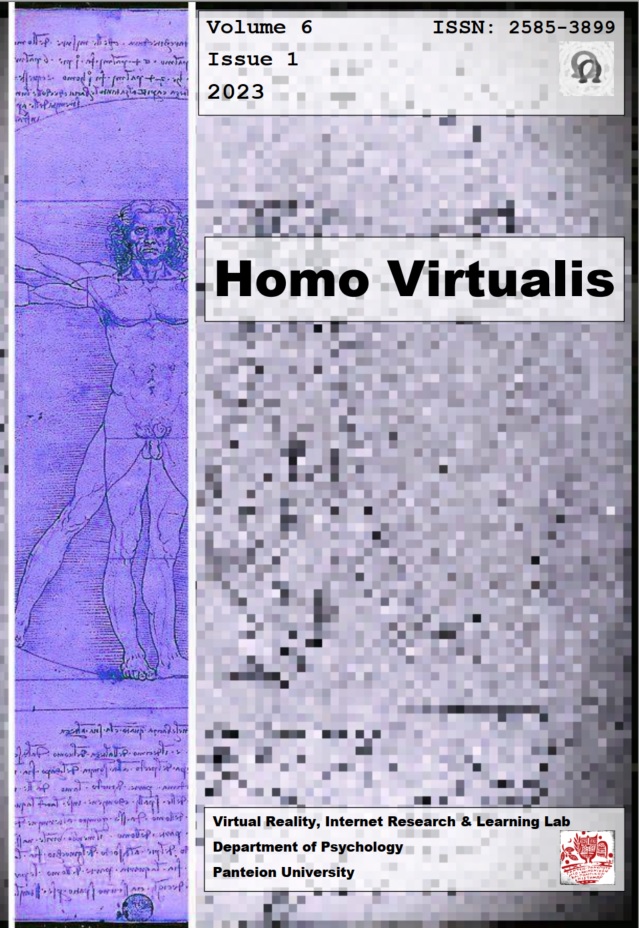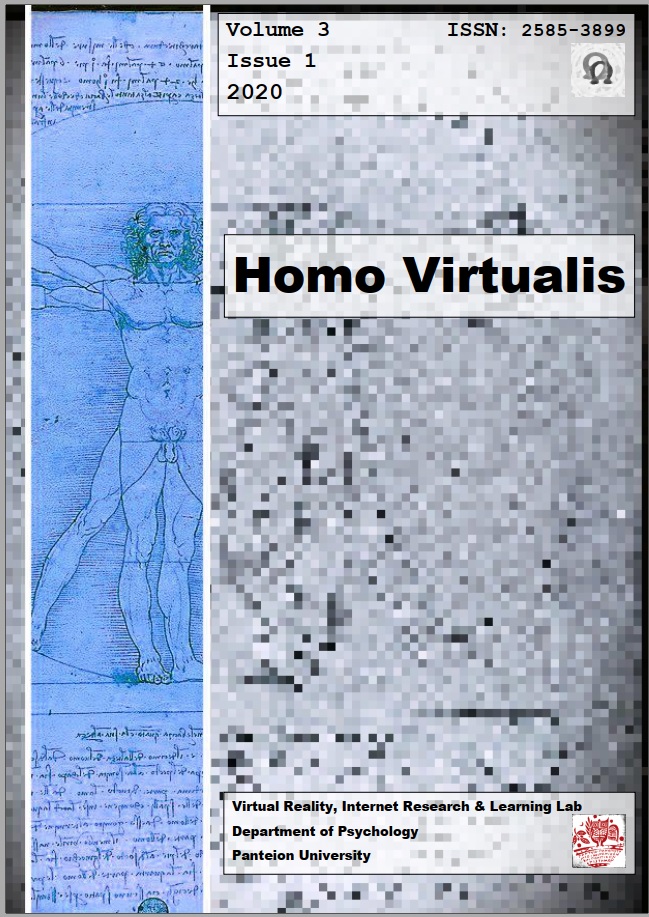Adolescents and the Internet: Relationships and Social Competencies in the Physical and Digital World
Abstract
The excessive use of the Internet by adolescents nowadays is associated with the term “addiction” and seems to affect young people’s functioning in their daily activities, education, interpersonal relationships and mental health. Many studies have highlighted the association of excessive Internet use with lowered subjective well-being feeling, depressive symptoms, problematic behaviors, and a marked decrease in social integration. The aim of this research is to investigate adolescents’ long-term use of the Internet, the impact of this use on their mental health and how this use relates to their social skills and daily activities. Eight adolescents from a provincial seaside area of Attica, aged 14 to 18 years old, participated in the present study and responded to open-ended semi-structured interview questionnaire. The present research was based on the thematic method of qualitative analysis. From the analysis of the data six main thematic categories emerged, such as the Internet and its multitasking use, Companionship and Internet, Emotional effects and social anxiety, Exposure to danger and Getting mature through the internet use. This research shows that social media form a parallel universe for adolescents in which communication and socialization are its main benefits. Moreover, at the end of the article some suggestions/indications for further research on this issue are presented, as it seems that the influence of excessive internet use has consequences in many areas of adolescents’ lives.
Article Details
- How to Cite
-
Makrodimitri, A., & Tragou, E. (2023). Adolescents and the Internet: Relationships and Social Competencies in the Physical and Digital World. Homo Virtualis, 6(1), 94–115. https://doi.org/10.12681/homvir.35968
- Section
- Articles

This work is licensed under a Creative Commons Attribution 4.0 International License.
Authors who publish with this journal agree to the following terms:
· Authors retain copyright and grant the journal right of first publication with the work simultaneously licensed under a Creative Commons Attribution License that allows others to share the work with an acknowledgement of the work's authorship and initial publication in this journal.
· Authors are able to enter into separate, additional contractual arrangements for the non-exclusive distribution of the journal's published version of the work (e.g. post it to an institutional repository or publish it in a book), with an acknowledgement of its initial publication in this journal.
· Authors are permitted and encouraged to post their work online (preferably in institutional repositories or on their website) prior to and during the submission process, as it can lead to productive exchanges, as well as earlier and greater citation of published work.




